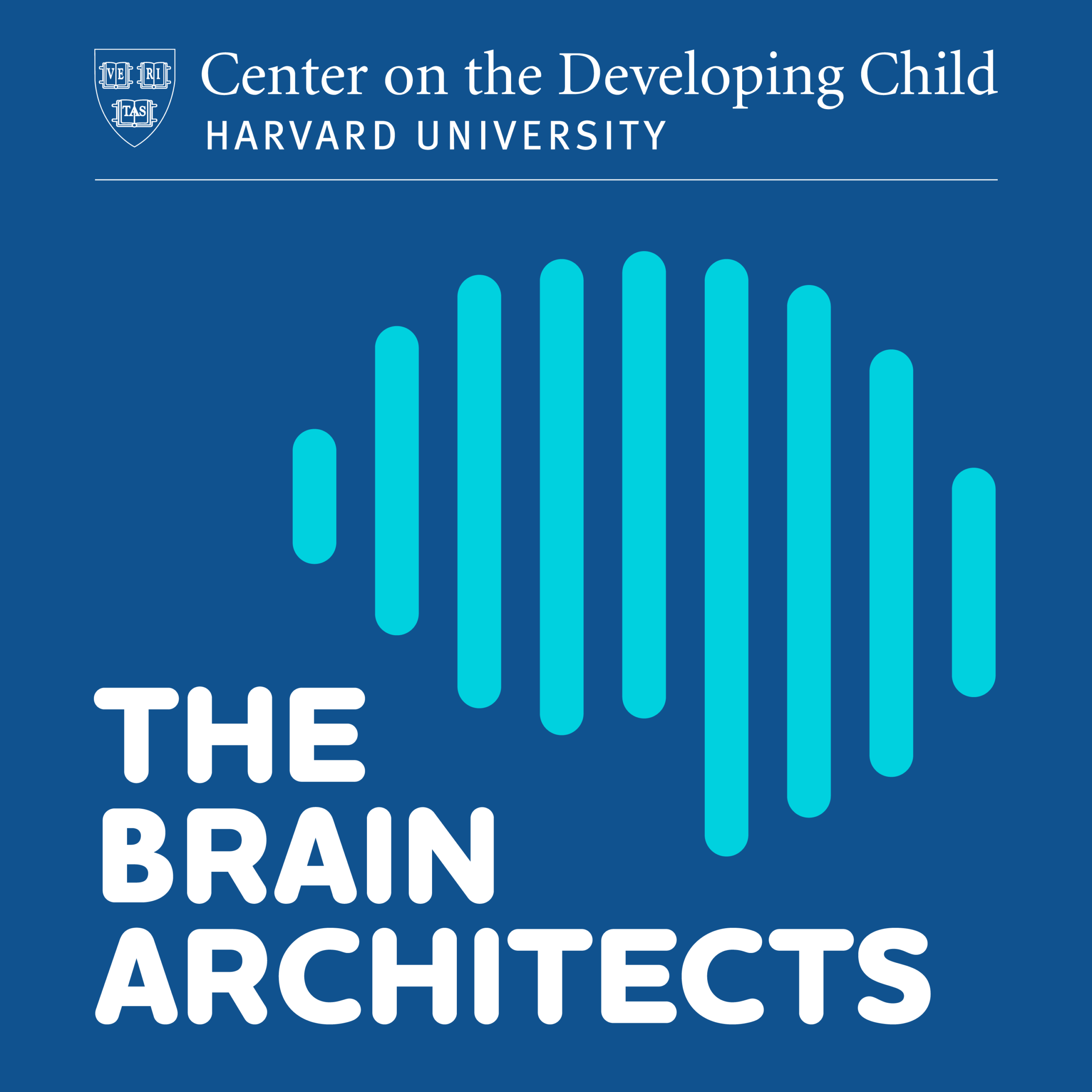COVID-19 Special Edition: Mental Health Vital Signs
Description
The devastating toll of the pandemic has underscored the critical importance of connecting what science is telling us to the lived experiences of people and communities. In March of 2020, we recorded episodes exploring the impact the coronavirus pandemic could have on child development. Now, a year later, we wanted to continue these conversations and discuss what we’ve learned, what needs to change, and where we go from here.
In the final episode in this special series, host Sally Pfitzer speaks with Dr. Nancy Rotter, a pediatric psychologist and the Director of Psychology in Child and Adolescent Psychiatry, Ambulatory Care Division at Massachusetts General Hospital. They discuss how the pandemic changed conversations around mental health, why we need to integrate mental health into the context of overall health, and what caregivers can do to help children prepare for the lessening of restrictions and the return to school.
Subscribe below via your podcast platform of choice to receive all new episodes as soon as they’re released.
Speakers
<figure id="attachment_4958" aria-describedby="caption-attachment-4958" style="width: 125px" class="wp-caption alignnone">
 <figcaption id="caption-attachment-4958" class="wp-caption-text">Sally Pfitzer, Podcast Host</figcaption></figure>
<figcaption id="caption-attachment-4958" class="wp-caption-text">Sally Pfitzer, Podcast Host</figcaption></figure><figure id="attachment_4959" aria-describedby="caption-attachment-4959" style="width: 125px" class="wp-caption alignnone">
 <figcaption id="caption-attachment-4959" class="wp-caption-text">Dr. Nancy Rotter, Pediatric Psychologist and Director of Psychology, Child and Adolescent Psychiatry, Ambulatory Care Division at Massachusetts General Hospital; Assistant Professor, Harvard Medical School</figcaption></figure>
<figcaption id="caption-attachment-4959" class="wp-caption-text">Dr. Nancy Rotter, Pediatric Psychologist and Director of Psychology, Child and Adolescent Psychiatry, Ambulatory Care Division at Massachusetts General Hospital; Assistant Professor, Harvard Medical School</figcaption></figure>Additional Resources
Resources from the Center on the Developing Child
- The Brain Architects Podcast: COVID-19 Special Edition: Mental Health in a Locked-Down World
- Q&A: The Coronavirus Pandemic: Mental Health One Year Later
- Re-Envisioning, Not Just Rebuilding: Looking Ahead to a Post-COVID-19 World
- Working Paper 15: Connecting the Brain to the Rest of the Body: Early Childhood Development and Lifelong Health Are Deeply Intertwined
- InBrief: Connecting the Brain to the Rest of the Body
- A Guide to COVID-19 and Early Childhood Development Resources
Resources recommended by Dr. Nancy Rotter
- Interim Guidance on Supporting the Emotional and Behavioral Health Needs of Children, Adolescents and Families During the COVID-19 Pandemic
- Mothers—and fathers—report mental, physical health declines
- Mental Health Impact of the COVID-19 Pandemic: An Update
- Depression and anxiety in pregnancy during COVID-19: A rapid review and meta-analysis
- COVID-19’s Disproportionate Effects on Children of Color Will Challenge the Next Generation
- A Guide to Mental Health Resources for COVID-19
- How to Talk to Your Children About the Coronavirus (COVID-19)
- Preparing Children for When Their Parents Return to Work
- National Alliance on Mental Health: Mental Health By the Numbers
Transcript
Sally: Welcome to The Brain Architects, a podcast from the Center on the Developing Child at Harvard University. I’m your host Sally Pfitzer. In March of 2020, we recorded episodes exploring the impact the coronavirus pandemic could have on child development. You may remember we discussed the importance of self-care for caregivers, and the importance of physical distancing, not social distancing. And now a year later, we wanted to continue those conversations and discuss what we’ve learned, what needs to change, and where we go from here.
Joining us on today’s podcast, we have Dr. Nancy Rotter. She’s a pediatric psychologist and the Director of Psychology in Child and Adolescent Psychiatry, Ambulatory Care Division, at Mass General Hospital. Thanks so much for being with us today, Nancy.
Dr. Rotter: Thanks for having me, Sally.
Sally: So, the pandemic has made conversations about mental health more common and perhaps even less stigmatized. How do we make sure that this perspective and these conversations continue even as vaccines become available and restrictions are lessened?
Dr. Rotter: You know, I agree that there has been some shifting over time in terms of awareness and acknowledgement about mental health and specifically children’s mental health. I think the pandemic has really raised these conversations to a higher level. I think that there’s certainly been comfort in talking about heightened distress that people have experienced due to the pandemic secondary to the many stressors that families have experienced. I think about things like loss of typical childcare support, like daycare, in-person school, or even grandparents caring for children, unemployment or shifts to having to work at home, social isolation. And I think all of these things are widely understood as contributing to how people are coping and to mental health. I think sometimes people find it easier to describe experiences of anxiety and depression in the context of stress and the stress perhaps experienced by the pandemic. You might not hear those words as much. You might hear things that sound less stigmatizing—that people might talk a lot about stress or isolation or fatigue, rather than referring to specific mental health conditions themselves.
I do think that it might be a good direction to go in to think about how we can acknowledge mental health conditions as an aspect of overall health so that we can increasingly talk about things like depression or anxiety or substance use disorders in the same way that we speak about diabetes or heart disease. Shifting towards a more specific and accurate language for mental health conditions can really make a difference. because I think if we do so we can really add clarity for diagnoses, which then result in leading to more effective evidence-based treatments to treat these illnesses. Again, thinking about these like we do other health conditions.
I think the continued progress, to kind of get to the other part of your question, towards the de-stigmatization of mental health conditions will really require increased and ongoing discussions about emotional health, and to have this happen in schools, in the media, within families, and certainly when children go to see their pediatrician. I think that pediatricians more and more are providing mental health screenings at routine exams, asking developmentally based questions to both parents and children or adolescents to screen for things that are concerning—anxiety, depression, sui





